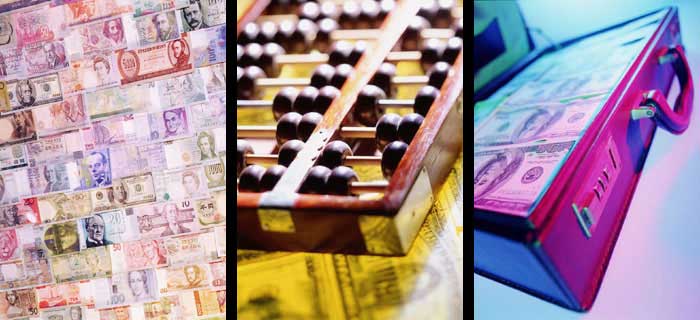Bill of exchanges is one of the most popular payment systems in China nowadays. It becomes one of the favorite because its simplicity, match for small businesses, and traded between banks are allowed. Besides of the advantages, it is also open to chances of crime, including fraud and robbery. Two of the most explicit of this type of crime are happening to ABC Banks (Referred to Agriculture Bank of China ) and China Citic Bank, two of the biggest bank in the country.
On January 2016, ABC Bank has lost 3,8 billion yuan bills of exchange. Police investigated this missing and few days later, they reported that 969 million yuan bills of exchanges was also lost from Citic Bank, located in Lanzhou, Gansu Province. From the investigation, police really positive that there must be an insider involve at this robbery of Bill of Exchanges. For the result from these two accidental case, the central government has elevated the rule of bills business by their regulation. CBRC (China Banking Regulatory Commission) had reminded the bankers on December, that there's a rise in number for fraud involving Bills of Exchanges and urge them to be very careful on carrying this business.
The investigation including the attention to the use of the fake document and the use of the cash from bills to invest in stock market. At June of 2015, the data has shown about 8 trillion yuan has lost from the interstate bank. This lost, nonetheless, are violations of Bank bills business. This procurement about bills financing has to be supervised more with professional included, not only by government regulators. There was a professional on bills financing, but only until the year of 2000. Their job is just to mediate between bank and companies who needs financing, and getting profit from that.
Bills of Exchange has a characteristic of opaque and loose, making abundantly increasing of the agents in China, and it also has the impact to increase this type of financing business. Central Banks has a report that said that bills of exchange have raised on value by 56,9 percent since 2004 until last years. This elevated has made a lot of transaction on paper, not a computer. It has make Bills of exchange become susceptible, or risky to crime. To handle this situation, CBRC makes several endeavors, which is to tighten the regulation of bills of exchange, and the central bank is trying to change the transactions into a digital format. The experts also said a lot about protecting banks from this fraudulent, one of it is the banks need to make their own supervisions to their own staff and management.
ABC and Citic Banks, also include the other few biggest banks in the country has suspended for a while for the transactions related to bills of exchange and doing some internal review. The small bank also becomes alert to the bill of business transactions. One of the sources also said that if people and paper are watched closely, then the business of bills will be okay. This is worth to try since Bills of exchange has made a significant improve to commercial banks profit, and make the share of the market grown from 32 percent in 2010 to 41 percent in 2014.
As the result of the investigation by the police department, they had arrest two suspect, which is the employee from the ABC bank as the offender. They have been accused of stealing. Later known that they were stealing those 3,8 billion yuan in the form of bills of exchange from the safe, and then stuffing it with a newspaper, exchange the bills for the cash and buy shares. There are several things unknown inside this stealing process because the bankers still wondering how both of them doing that stealing without any help from others. The police have done some more interview and investigation which deliver to the fact that the executives of the ABC Banks are also involved during the stealing process. The police tracing where the bills go to, and found it on Minsheng Bank, with the intermediate of Ningbo Bank. An agent from Chongqing is also involved. By the interview, nothing has found wrong with the bills transactions.
Police found the similarity with the offender of the Citic Bank, which also doing by the insider of the bank, but with a different mode. The offender replaces the bills with a fake document, and then sells it with discount price, more than once. One of the bankers said it is pointed out that bank procedures have been in problems to handle the bills. This is causing an open room to the robbery. The CBRC and Central Bank as the vigilance of this type of crime have made a remembrance tighten the rules of the transaction, but a lot of banks has neglected it. The bankers have put aside the risk, and choose to still have this transaction of bills of exchange because it may seem safer than the traditional transactions, which is writing the loans.




